Compiled by Eric Heinz
For the at-large Denver City Council candidate race, we asked each candidate two questions.
The names are listed by order of appearance on the April 4 ballot, as determined recently by the Denver Elections Division. The two candidates who either did not respond or opted out of the questions were Dominic Angelo Diaz and Janelle Jenkins.
The answers to each question are designated as:
A1. What Denver issue(s) are most important to you and why?
A2. What traits make you the best candidate to represent the city at-large?
Jeff Walker
A1. The creation of safe streets is my personal top priority and folds into the top priority of the people I meet. The viability of the transit system and sidewalk network determines the quality of options for housing, employment, healthcare and education. Approximately 70,000 households in metro Denver do not have an automobile available. This means that safe streets for walking, rolling or biking and reliable transit are an absolute necessity for a strong economy and high quality of life.
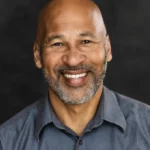
The benefit of safe streets does not stop at the city boundary. Safe streets are good for Denver and the region because increased access to transit improves air quality through lower emissions. Safe streets improve water quality through less chemicals leaking from cars and washing into the South Platte River. Safe streets reduce vehicle crashes. Over 300 persons have been killed or seriously injured in Denver every year since at least 2013. We can make Vision Zero a reality by creating safe streets.
A2. I believe every at-large candidate would serve the city well. However, the trait that sets me apart is my passion for urban planning. I have 30 years of experience in public involvement, transportation, land use and infrastructure. I helped start Rosedale’s registered neighborhood organization and later served as its president. As an appointed and twice-elected member of RTD’s board of directors, I oversaw the budget of the country’s third-largest transit agency. At the national level, I served on the American Public Transportation Association’s leadership development committee, finance committee and board of directors. And professionally, I’ve acquired property and permits for infrastructure projects for 20 years.
My service at the neighborhood, citywide and national levels will certainly be an asset on Denver’s City Council.
Marty Zimmerman
A1. 1. Affordable housing — Increasing affordable housing will positively impact Denver’s economy, improve health outcomes, and create housing stability for individuals and families experiencing housing insecurity.
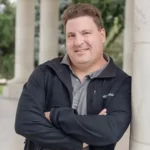
2. Economic development — Providing new employment opportunities to grow Denver’s workforce and developing programs for people to start new businesses that will enhance our economy.
3. Community representation — Ensuring that all of Denver’s diverse voices are heard and that policies aren’t made for neighborhoods without genuine community input.
A2. 1. My experience — I have worked with 400+ nonprofits to address every major issue facing our city.
2. My accomplishments – I have built a reputation for getting things done whether it was changing state law to support individuals with disabilities get access to education, getting affordable housing units built, or helping incubate 22 businesses including one that has positively impacted more than 8.5 million lives.
3. My training — I am a trained facilitator who builds collaborations to address difficult issues and create solutions. I am also a trained social worker who was taught how to listen first.
4. My personality — I am personable, approachable, humble and accessible.
5. My rationale — I want to address systemic issues because Denver needs improvements and I believe that I can best make these changes from the position I am seeking.
Penfield Tate
A1. Crime, housing, climate change and transit are the top, inter-related challenges. I co-chaired the community committee that led to creating Denver’s Independent Monitor to hold rogue cops accountable. Costly settlements over police misconduct gives good cops a bad name, undermines public trust and compounds personnel shortages. I support expansion of Denver’s Support Team Assisted Response (STAR) Program to help persons with substance abuse and other mental illnesses.
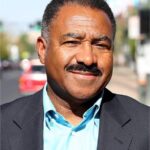
I will protect open space like the former Park Hill Golf Course that should complement — not compete — with sustainable density. A public finance attorney, I with work with developers and neighborhoods to turn empty lots and empty buildings into housing accessible to real families and a beacon of hope to the unhoused. I will work with regional governments and nonprofits to expand public transit options that are convenient, affordable and safe while enhancing local mobility, including sidewalks and dedicated bike lanes.
A2. My extensive community, executive, legislative and legal experience has confirmed my commitment to collaboration and consensus to achieve results — without compromising principles. I represented my neighbors in the Colorado State Senate and House, worked for Mayor Peña, and directed a state agency for Governor Romer. I understand the complexities of development from being a public finance attorney for Denver Urban Renewal Authority, Denver International Airport, RTD, Union Station, Lowery and numerous other projects. Starting my community service at the Five Points Community Center, I’ve served on various boards, including the Denver Water board, the Colorado Housing and Finance Authority and Ability Connection.
Sarah Parady
A1. Housing, homelessness, community safety, climate change and transit. All of these issues are really about our health and well-being, and there is a remarkable level of agreement from folks I talk to that these are the big five. When I think about the safety of my family from now into the future, these are the same issues that come to mind.
My core belief is that when we leave members of our community behind, we are all impacted. I think our homelessness crisis and behavioral health crisis make that clear. The flip side is that when we invest in each other, it’s good for everyone. We haven’t been doing that sufficiently, and I am determined to reorient city government to meeting the basic needs of everyone who lives here.

A2. I love people. I love our city. I’m curious, warm, empathic and excited about what we can do together. You can trust me to take clear positions, communicate what I believe and why, and accept feedback — even tough feedback — without defensiveness.
In addition to running my small public interest law firm for many years, I have led several large bar associations, including the Colorado Women’s Bar Association with over 1,500 members and a 50-woman board, and chaired other nonprofit boards. In any leadership role, my first move is to learn from everyone who has something to teach and surround myself with other strong leaders with skills and backgrounds different from my own. My second is to think structurally about where an organization needs to do some hard work to function better. And my third is to lay out clear processes so that people are empowered to do that work together.
Serena Gonzales-Gutierrez
A1. Denver faces two primary interconnected challenges: a lack of affordable and stable housing, and a desperate need to address the root causes of crime. We know that access to stable housing is a major factor in health, financial stability and general well-being. Bringing down the cost of rent, creating housing options for people experiencing homelessness and increasing renter protections are the first steps to making our city a place where people can put down generational roots.
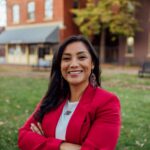
It’s also the first piece of addressing crime at the root, and must be supplemented with a significant investment in our behavioral health services. There are not enough providers in the city and county of Denver, and I will lead a coalition to increase that number significantly so that anyone who wants or needs treatment can get it. We must also look at targeted investments with proven success at reducing violence, like community engagement opportunities and outreach to chronically disinvested areas of the city.
A2. My family has been serving Denver for generations. We’ve been displaced and priced out, we’ve marched for justice in the streets, we’ve served as city employees and small business owners and nonprofit leaders. I’ve carried that legacy in my own career, helping Denver kids and families access basic services and essential behavioral health care for the last twenty years. And as a state legislator, I’ve proudly represented Denver’s Northside and Westside, championing over 60 bills to increase the stock of affordable housing, make transformational investments in our behavioral health system, hold corporate polluters accountable, fight for workers’ rights, and increase protections for renters and tenants. I’m ready to continue that service in Denver, to focus my work on the city that raised me and continue making Denver a city where working people can put down generational roots.
Tim Hoffman
A1. As a prosecutor for the past six years, I have seen firsthand the devastating impact that crime has on our community. It robs victims and their families of their sense of security and destabilizes entire neighborhoods. Holding accountable those that prey on some of Denver’s most vulnerable citizens has been a focus of mine. At the same time, we must address the root cause of much criminal behavior. This means increased funding and programming around addiction treatment, mental health supports and economic opportunity. We can prevent much of the crime from ever taking place by proactively diverting and supporting Denverites who are struggling.

We must also do more to boost the stock of affordable housing in our city. Homelessness is caused, in part, by expensive housing market. Bolstering the supply of housing while also providing direct supports to get people into housing and keep them there benefits the entire city.
A2. I truly believe in servant leadership and approach the role of city councilor with humility. I have deep experience in the criminal justice system and have priorities as it relates to housing, transportation, climate change, and many other areas … but I also know that I am not an expert in all topics and don’t have the lived experience that many of my neighbors across Denver do. While I will fight for my priorities and values, I will always have an open door to anyone in the community who wants to speak with me. Leadership, if done well, involves listening to others, especially when they have a different point of view or perspective.
Travis Leiker
A1. I believe the at-large City Council seat is uniquely positioned to build consensus across district boundaries, provide support to district offices and interface closely with the executive branch to bring citywide solutions to the challenging issues of the day. The 2023 election is the most consequential in 40 years.

After traveling throughout the city and conducting numerous conversations with community leaders, I have outlined my eight-point roadmap to get Denver on the right course including: (1) Investing in all neighborhoods; (2) Promoting effective, efficient city government focused on customer service; (3) Confronting crime and improving neighborhood safety; (4) Meeting Denver’s housing needs through choice and opportunity; (5) Implementing a data-centered approach to address homelessness through more services and strengthened accountability; (6) Streamlining our electoral process to increase participation; (7) Engaging more in economic development; and (8) Getting existing big projects done and avoiding new red tape.
A2. I am running for Denver City Council at-large because we need a citywide perspective and citywide solutions to the most vexing issues of the day. Denver needs council members who understand the importance of regional partnerships and the capacity to build relationships beyond city boundaries. All Denverites deserve stability, predictability and steady leadership. I am keenly aware of this need and commit to delivering these qualities upon taking office. I have crafted the art of the turnaround — enhancing stable organizations and saving others from collapse. This is the most consequential election in 40 years, and Denver does not have time for on-the-job training. It’s time to elect those with the experience and know-how to get Denver on the right course and swiftly. We are at an inflection point. I believe I am best suited to bring stakeholders together to move Denver forward with pragmatic solutions and solid leadership.
Will Chan
1. My campaign plans to fill Denver’s GAPS, making our city Greener, more Affordable, more Prosperous and Safer:
Green: Address transit, climate and pathways to green jobs.
Affordable: Work to update housing options and policies to support housing affordability, support working families by improving access to childcare among other services, and protection for contract workers.
Prosperous: Overhaul policies for big and small business who call Denver home, streamline permitting and licensing processes, and incentives for businesses providing social good.
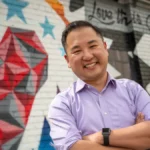
Safer: Expand alternative interventions to policing, invest in civic engagement opportunities for youth interventions to prevent crime, and investing in programs proven to reduce recidivism.
A2. I bring over 20 years in government, labor and education advocating for working families. As a city of Denver public servant, I’ve managed budgets including the distribution of $154 million of federal funding to help residents, businesses and neighborhoods. I developed programs, many of which are still in existence today, that lifted hard-working communities, supported residents, business owners, and welcomed first-generation Americans.
I am a Denver-born son of immigrants, who came here to build a safe, new life which was only possible through the opportunities they encountered in our city and the support of the community. I have seen the city that raised me changed dramatically. The same opportunities for upward mobility that my parents used to work themselves out of poverty, are not as accessible today. My capacity as a public servant and my personal experiences have instilled the skills and perspective needed to truly understand the issues Denver faces today and guide me towards practical solutions.

Be the first to comment